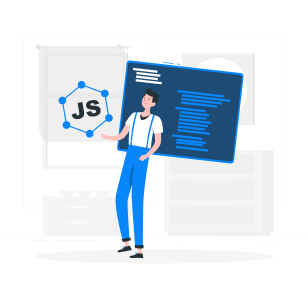-
Which language is
the most preferred by Java Full Stack Developers?
JavaScript is often preferred by Java Full Stack Developers for frontend development due to its versatility, widespread adoption, and compatibility with popular frameworks like React and Angular. Additionally, Java is commonly used for backend development, making it a natural choice for full-stack development projects.
-
How to enhance a
website’s scalability and efficiency?
To enhance website scalability and efficiency, optimize code for performance, implement caching mechanisms, and utilize scalable infrastructure like load balancing and CDN services. Regular monitoring and optimization ensure smooth operation and responsiveness, accommodating increasing user demands effectively.
-
Comparison
between Java and Python
Java is often favoured for enterprise-level applications due to its robustness and performance. Python, while versatile, is commonly used for rapid prototyping and data analysis tasks. For mission-critical systems and performance-intensive applications, Java's maturity and extensive ecosystem make it a preferred choice over Python.
Major Java Features
1. Platform Independence: Java code can run on any device with a Java Virtual Machine (JVM), making it versatile.
2. Object-Oriented: Java organizes code around objects, making it easier to manage and reuse.
3. Strong Typing: Java ensures that data types are clearly defined, reducing errors and improving reliability.
4. Memory Management: Java handles memory usage automatically, preventing memory leaks and crashes.
5. Concurrency: Java supports running multiple tasks simultaneously, enhancing performance and responsiveness.
-
Explain the
difference between front-end and back-end development.
Front-end development focuses on the user interface and client-side functionality of a website or application, while back-end development deals with server-side logic, databases, and server management. Front-end involves designing and implementing what users interact with, while back-end handles the behind-the-scenes operations that power the front end.
-
Why is Java a
platform-independent language?
Java is platform-independent because it compiles code into a universal format (bytecode) that any system can understand through its Java Virtual Machine (JVM). This allows Java programs to run unchanged on any device with a JVM, regardless of the underlying operating system or hardware.
-
Tell us
something about JIT compiler.
The JIT (Just-In-Time) compiler in Java dynamically translates bytecode into native machine code at runtime. It optimizes performance by identifying and compiling frequently executed code segments. This compiled code is cached for reuse, enhancing execution speed. JIT compilation bridges the portability of bytecode with the efficiency of native code execution.
-
Explain
dependency injection.
Dependency injection is a design pattern where components are given their dependencies rather than creating or looking for them internally. This promotes loose coupling, making code more modular, testable, and maintainable.
-
Explain event
loop in Node.js
The event loop in Node.js is a single-threaded mechanism that allows asynchronous JavaScript code to execute non-blocking I/O operations efficiently. It continuously listens for events and executes callbacks when they occur, ensuring smooth handling of tasks without waiting for each operation to complete before moving to the next.
Ready to Take the Next Step? Enroll Now!
Seize the opportunity to transform your future with our
comprehensive courses at
Talent
Turbo. Whether you're aiming for career advancement, personal growth, or
simply
pursuing
a passion, our diverse range of programs awaits. Join our
community of learners and
embark on a journey of discovery, learning,
and achievement.

